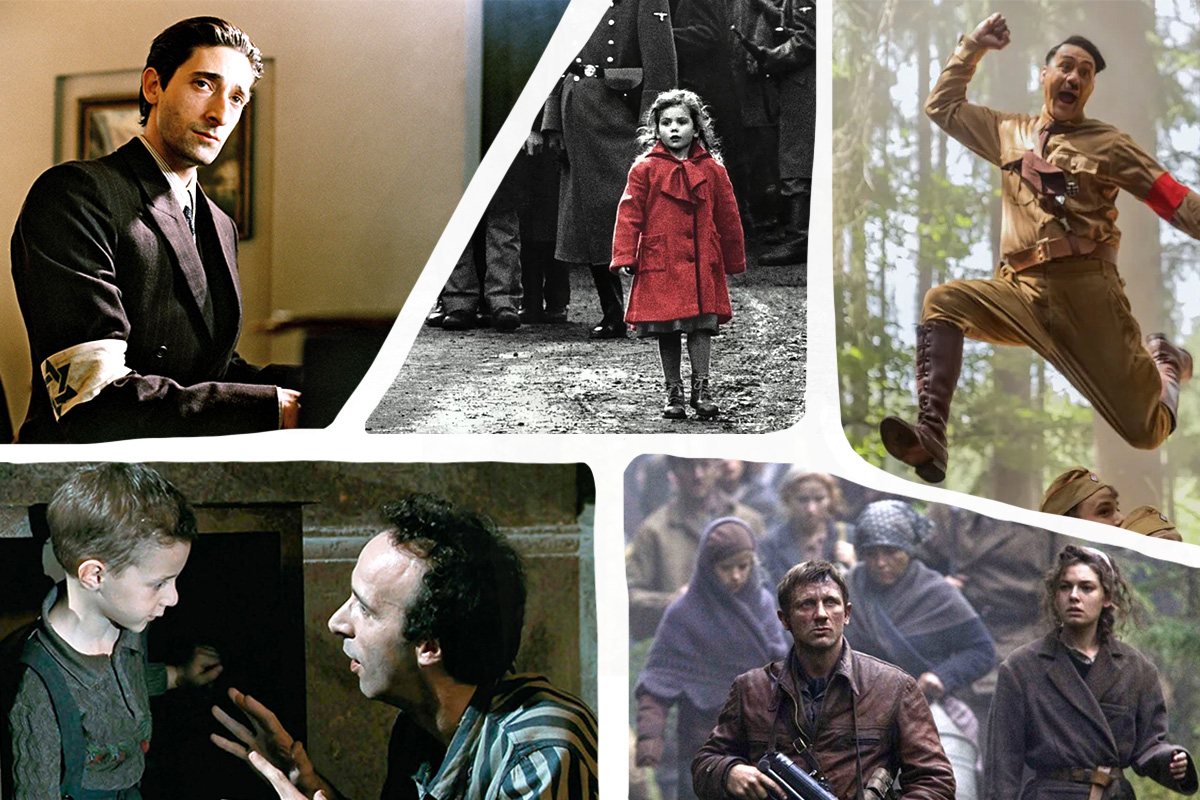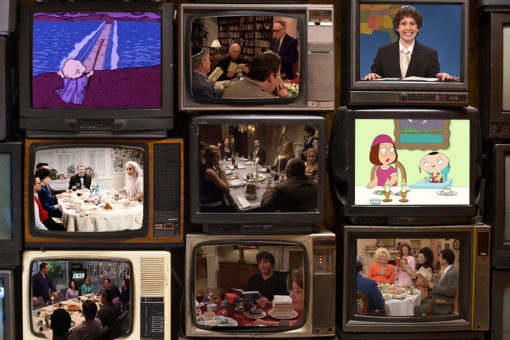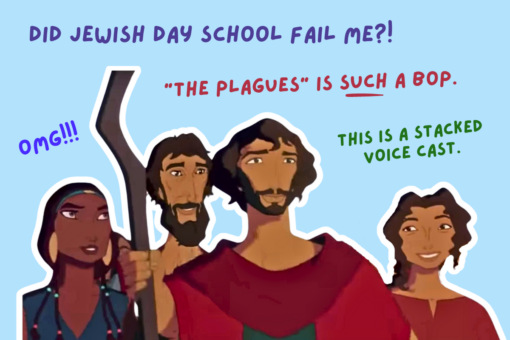If, like me, you find it hard to quiet your mind before sleep you’ll have a regular arsenal of tricks; sleep podcasts, reading Hemingway, a toke of the green stuff. But there’s one thing that calms my mind faster than anything else… re-watching a Holocaust movie.
Does this sound unhinged? It might be. For some time, I’ve defaulted to war movies as my digital security blanket. I feel a very reliable type of cold comfort; somehow even more on the inside of my own culture. I feel plunged into a history that I was lucky enough not to be born into, that my family did not have to run from, yet was still so ingrained in my upbringing. It’s something I’ll never fully grasp, but have become obsessed with in my adult life. A history that doesn’t belong to me, but I feel so connected to — even more so when seeing it through the lens of Spielberg, Polanski or more recently Waititi. A history that is in my periphery every time a synagogue is attacked, every time I see a swastika spray painted on a wall somewhere.
Growing up, it was important to know the great Hollywood classics in our home. Along with “Chinatown,” “Patton,” and “Dr. Strangelove” there was of course “The Pianist,” “Life is Beautiful,” and “Schindler’s List.” I’ve seen the latter films so many times I could hum each soundtrack, start to finish. That’s part of the allure of a great Holocaust film: the sound. While film is a mostly visual medium, one of the strongest threads connecting almost all great films about the war is that they have hauntingly beautiful music to carry you through every tragic moment. Perhaps it helps quell the parallel sounds of gunshots, tears, and families being torn apart. Just as powerful is the absence of sound, as is evident in the sparse, but beautiful, 2015 Polish film “Ida.”
But it’s not the sound that grabs at my chest. Is it the clarity? The sharp detail of Adrien Brody’s hands in “The Pianist” (yes, he’s really playing in the film); the blue eyes in Mélanie Laurent’s character hiding below the floorboards in “Inglorious Basterds.” We don’t get to experience that kind of detail in most historical artifacts; in grainy photographs and handwritten documents. There was no HD in the 1940s. It gives a certain depth, an understanding and a closeness to the storytelling. This type of vivid exposure builds its own universe of reality, that someone born decades later can begin to tune into. True, a handful of my favorite Holocaust films are far from historically accurate, but even the whimsy of “Jojo Rabbit” puts me in a place of deep contemplation.
Maybe it’s the anger I feel that’s kept a movie like “Defiance” on my hard drive for so many years. While its accuracy has been questioned, that’s not what I’m focused on. No, my blood boils at the reality that even if this exact story didn’t happen the circumstances were so real: families forced to run and hide, to live off the land, to be constantly afraid – just for being Jewish. Religion and borders do not determine the value of a person.
My great grandparents all came from Ukraine to Canada in the early 1900s, leaving what was then a very unsafe place to be a Jew. Because my grandparents were born in Canada my connection with the Holocaust is indirect; I’ve never heard stories of the war from a bubbe who was there. Instead, I grew up watching movies and reading; absorbing history through the lens of entertainment. Sometimes I worry that it’s perverted, that somehow I’m not properly honoring the victims. These films are entertaining – does that trivialize their impact?
Could it be the glimmer of hope? That slim and seemingly breakable thread you will find throughout every film about the war. Whether it’s the red coat in “Schindler’s List” or the dancing at the end of “Jojo Rabbit,” there’s always some small glimpse of a brighter future. I’m well aware that It’s Hollywood’s job to give us hope, that’s a part of the sleight of hand in watching a movie. But am I a chump for falling for it? Am I drawn to Holocaust films with that sprinkle of hope because they fill me with that same feeling?
I would say that I am generally not a hopeful person. Most of the time, I see the worst in people and the rest of the time, it’s a pleasant surprise. So it’s a relief when I can be transported, lifted away to a place that is so much my own and so convincingly hopeful. That when the unthinkable, the most terrifying thing is happening, there is somehow hope. The sentimentality does frighten me (as a natural cynic), but there’s no escaping it; that need to have something to hold onto in the darkest of times. I’ve always been able to rely on great storytelling to help put my own life into perspective, to lift me up out of myself. It also frames the world around us, helps us to find balance and begin to comprehend the unimaginable. That might be the most important part of these films; seeing hope in the darkest places inspires compassion and a deeper willingness to love even those we do not understand.



